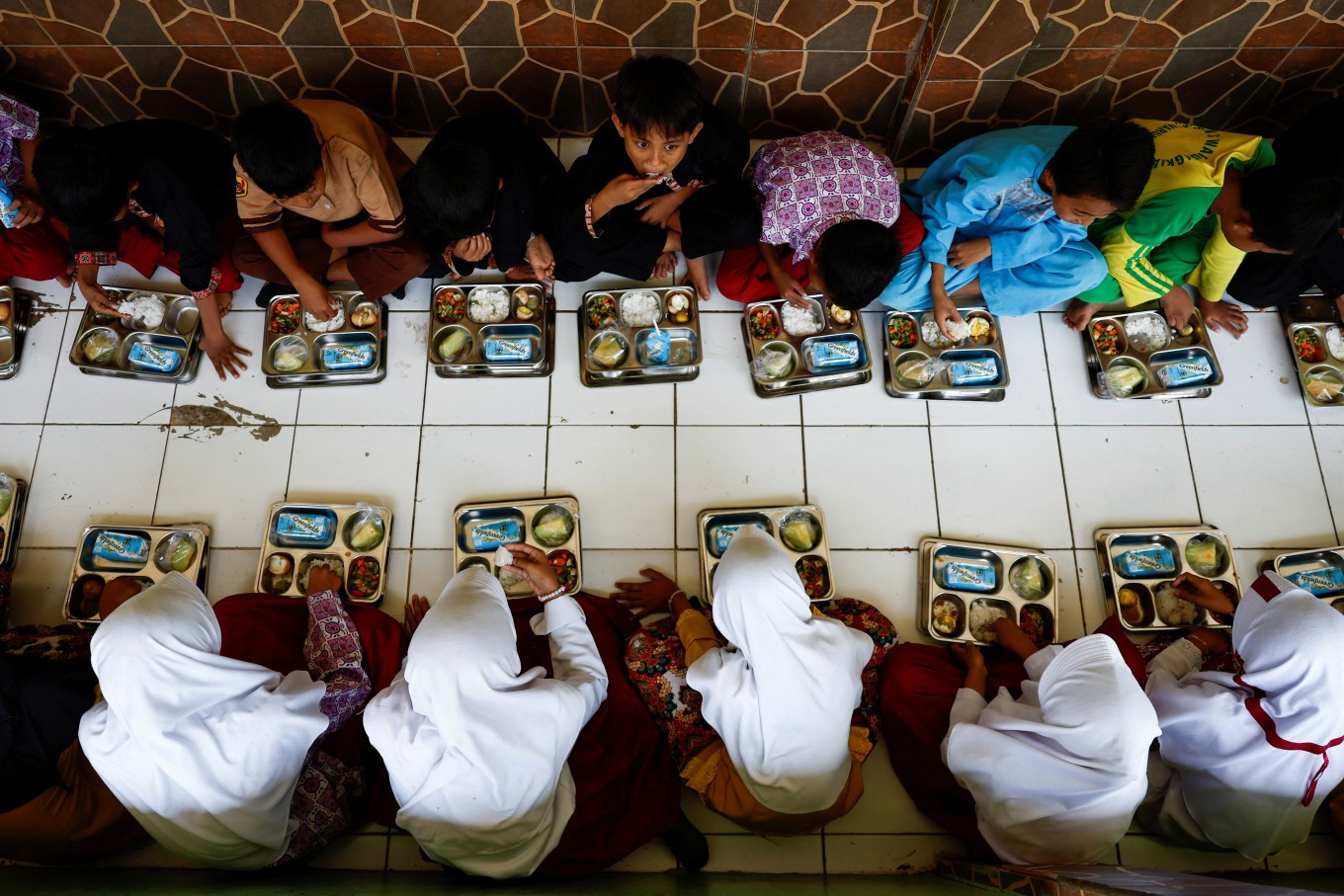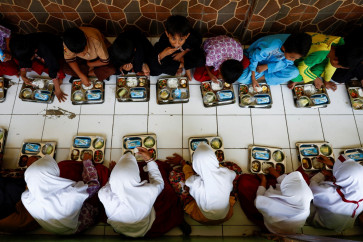Popular Reads
Top Results
Can't find what you're looking for?
View all search resultsPopular Reads
Top Results
Can't find what you're looking for?
View all search resultsAnalysis: Prabowo cuts free meal budget per portion, ride-hailing apps help deliver
Change text size
Gift Premium Articles
to Anyone
P
resident Prabowo Subianto’s flagship free nutritious meal program has undergone a significant budget cut per portion, reducing the allocation price per child and per pregnant woman from Rp 15,000 (about US$1) to Rp 10,000 per pack to create room for other costs or to cover more beneficiaries as the total budget remains the same at Rp 71 trillion for 2025.
Following a closed-door meeting at the Presidential Office on Nov. 29, President Prabowo announced the budget cut per portion for the free meals program. While the total budget remains unchanged, the justification for lowering the per-meal allocation is unclear.
President Prabowo noted that this free nutritious meal program is also designed to directly improve the lives of workers’ families, from children to pregnant women. This additional welfare benefit will significantly contribute to their well-being. Expanding the reach of this program to broader beneficiaries, like focusing on workers’ families, could be a reason for its sudden budget cut.
The budget cut per portion was calculated through the results of several trials. National Nutrition Agency chairman Dadan Hindayana indicated that the price per portion was calculated after conducting an 11-month trial phase primarily in Java, deriving an average price point of Rp 10,000. In certain regions, this amount is deemed adequate to ensure the provision of nutritious and wholesome food.
However, this would not apply in more expensive regions. Hence, President Prabowo emphasized that this figure is merely an average and is not the maximum price as adjustments can be made for regions with higher costs of living, as long as the total budget remained the same Out of the total budget of Rp 71 trillion, Rp 63.35 trillion will be spent on the nutritious meals and the remaining 7.4 trillion for programs supporting management.
The free nutritious meal program is set to commence in January 2025, initially benefiting 3 million children. The government aims to double the number of beneficiaries in the next three months after its first launch. Ultimately, the government aims to deliver the free meals to 82.9 million schoolchildren and pregnant women all over Indonesia, with a total budget reaching Rp 400 trillion a year.
To fulfill this target of recipients in the first year, assistance from several stakeholders, such as ride-hailing and online delivery service companies Gojek Tokopedia (GoTo) and Grab Indonesia, as well as cooperative units, is needed.



















